#PassengerCars
Morgan Stanley Is Pretty Sure GM's Cars Will Soon Go the Way of Ford's
Given the automaker’s sales numbers, it’s not the wildest prediction. Investment bank Morgan Stanley sees General Motors’ American passenger car lineup — or most of it, anyway — disappearing in the near future.
The move would see GM adopt a similar product strategy as its Detroit Three rivals, with sedans relegated to overseas markets and focus placed firmly on the production of trucks, crossovers, and SUVs. Barring $4 or $5 gasoline, domestic buying habits make this prediction seem inevitable — and there’s already rumblings of an impending cull in the automaker’s stable.
Toyota Wouldn't Dream of Ditching Passenger Cars, Has Fingers Crossed It Can Woo Ford Buyers
While fewer competing models in a given segment stands to benefit any automaker left in that realm, Toyota isn’t sure just how loyal Ford car owners are to the Blue Oval brand.
Behind the scenes, there’s surely much licking of chops, but Toyota Motor North America CEO Jim Lentz wasn’t forthcoming with conquest predictions when he talked with Automotive News TV this week. One thing was clear, however. Toyota will remain a full-line brand for the foreseeable future, and the automaker stands to field a more car-heavy product mix for some time to come. And it’s just fine with that.
Two Large Front-drive Cars Buck the Sales Trend
April wasn’t a hot month for auto sales, what with two less selling days than the same period last year. Overall, the industry was down nearly 5 percent last month, with — in many cases — only the hottest-selling models, many of them recently revamped SUVs, posting a net gain.
April held some surprises, though, and one had to do with a pair of vehicles that should be on their way to the funeral home. That is, if all automakers acted on what they saw in the tea leaves. Certain automakers, Toyota and Kia among them, aren’t quite as eager to hop onto the all-crossovers-and-trucks bandwagon. Because of this, there’s still choice for someone looking for a large, front-wheel-drive sedan with plenty of content, but not luxury vehicle levels of it.
These people actually exist, albeit in ever smaller numbers. And these people apparently like what they see in two particular models.
Lincoln Says It's 'Committed' to Sedans, but for How Long?
Man, how about that upcoming Lincoln Aviator? Pretty sharp-looking SUV, ain’t it? And then there’s the new Navigator. Kinda big, though, but the 2019 Nautilus should be just the ticket for the front-drive midsizer crowd.
Oh, right — we were talking about sedans. Lincoln loves ’em, apparently, and it’s not having any of this Ford’s-killing-all-the-cars talk.
People Still Want Cars and Minivans, Kia Exec Says, but There's Some Things Kia Just Won't Do
As market share swings rapidly towards SUVs and crossovers, automakers have had to sit down with their accountants and crystal ball to map out a product strategy for the future. The questions swirling in an executive’s mind are easy to imagine: Are cars worth it? Is it still useful having a minivan in the lineup? Does the future call for crossovers, not cars, in every size class?
Fiat Chrysler’s American divisions have already pulled out of the compact and midsize car market, and forget about the possibility of a subcompact. Minivans? Nah. Ford Motor Company’s non-truck lineup looks to be headed down a similar road. At Kia, however, there’s not one or two, but six passenger cars on offer, spanning the subcompact to full-size premium segments. Like minivans? They’ve got ’em, too.
Is this a smart strategy for a brand that saw its sales fall 8.9 percent in the U.S. last year? Sure, says Kia’s vice president of product planning — it means certain buyers aren’t being forgotten. Not everyone wants a crossover. One thing Kia won’t do, however, is follow its corporate sibling Hyundai down certain product paths.
Is It Time to Kiss the Jaguar XJ - at Least As We Know It - Goodbye?
The Jaguar XJ, a slinky lineage of high-end saloons known for shuttling around British PMs, fictional heads of MI6, and The Equalizer, might not be around for much longer. At least not in the manner we’re used to seeing it.
British publication Autocar claims the automaker plans to spring a wholly new, “reinvented” flagship model on us before too long, and it won’t have an inline-six, V8, or V12 under the hood. It won’t use any gas at all. Nor will it remain a sedan.
Looking around at today’s vehicular landscape, it may be the only way to save the XJ.
Ford's Short-term Game Plan: Cull Cars, Slash Configurations, Boost Profits
There’s a bell tolling for probably more than one Ford passenger car model, though we don’t know which ones just yet. Or do we?
As part of its updated operational strategy, detailed at the Deutsche Bank Global Auto Industry Conference in Detroit Tuesday, Ford Motor Company plans to sink $11 billion into electrification by 2022, release 16 fully electric models on a global scale, and field SUVs in every possible segment and sub-segment. Exhibit A: the subcompact EcoSport and brawn-ified Edge ST.
The company’s goal is greater profits and a healthier return for shareholders, not to mention a hoped-for lift in share value. Certainly, Ford’s declining stock did former CEO Mark Fields no favors.
Unfortunately, in order for Ford’s fortunes to soar, certain models will have to die. The company says it “will shift toward a lower volume passenger car lineup in North America and Europe.”
Still Hot After All These Years: Not Every Passenger Car Model Has One Foot In the Grave
I often joke that not only are we all destined to buy a crossover in the near future, we’ll one day become crossovers. Oh, how the TTAC guys laugh…
Still, it’s hard to avoid the crossovers-are-replacing-cars narrative, as it isn’t some far-out theory — it’s a cold, hard reality. Crossover and SUV market share grows each year as buyers abandon traditional passenger cars in favor of a vehicle that does everything at least marginally.
That said, not every model faces the same rate of abandonment. Certain cars — through a hazy combination of performance, value, nameplate recognition, and other, more nebulous factors — haven’t yet been dropped off on the front steps of the orphanage by their once-loving guardians.
Let’s take a look at some surprisingly healthy performers in the non-premium, non-sports car class. Cars that aren’t declining in popularity, as this analysis isn’t about overall volume. Guess what? None of these vehicles are the Toyota Camry or Honda Accord, two models currently locked in a battle for midsize sedan supremacy (and worthy of their own singular coverage).
Hard to believe, we know, but there’s loyalty and desire to be found elsewhere.
QOTD: Which Sedan's Door Will the Grim Reaper Knock on Next?
None of us can predict the future, but just think of the penthouse-in-Dubai levels of cash that awaits us if we could. Alas, all we can do is follow existing trends and make a best guess.
In the automotive world, the fate of a car model lies at the intersection of sales, industry direction, and emerging technologies. SUVs and crossovers hang like a blade over the necks of all traditional passenger cars, and autonomous vehicles menace everything with a steering wheel. Electric motors threaten to turn the exhaust note into a distant memory. Governments and regulators stand in the shadows, eager to spring forth one day and spoil all of our internal combustion fun. In spite of all of these factors, there’s still bold predictions made every day about the future of the industry in five, 10, 20, 50 years.
Today, we’re asking you to peer into the Magic 8 Ball and make a prediction of your own. A very specific prediction, to be clear, and it only needs to involve one model: the next U.S.-market sedan to die.
KPMG Study Has Even More Bad News for the Lowly Sedan
The hard-done-by sedan, once as commonplace as weeds, junk mail, and shattered dreams, doesn’t need any more of a push as it shuffles towards its waiting grave. The buying public is already killing the segment through neglect. Last month, the once-Godlike midsize sedan fell below 10-percent market share in the U.S.
It’s grim times for the traditional sedan, be it compact, midsize, or land yacht. However, anyone hoping for a plateau or even a sales revival is kidding themselves, according to a study by KPMG. The advent of technology will only push more buyers away from sedans and towards their one true love.
Detroit's Passenger Car Sales Are Falling Way Faster Than the Overall U.S. Auto Industry's
Across the U.S. auto industry, there are a number of auto brands that are actually selling more passenger cars in 2017 than in 2016: Jaguar, Lincoln, Infiniti, Subaru, Volkswagen.
Some specific models, many with all-wheel-drive availability like the Audi A5, Subaru Impreza, and Volkswagen Golf, are enjoying far greater sales success this year than last.
But you know the story. Generally speaking, Americans are buying far fewer cars now than they used to. From more than 50 percent just five years ago, passenger car market share is down to 37 percent. Nowhere is this more obvious than at traditional domestic manufacturers, the Detroit Three.
These 16 Cars Are Bucking America's Anti-Car Trend in 2017
Through the first eight months of 2017, consumers across America have acquired 12 percent fewer new passenger cars than during the first eight months of 2016.
That’s a drop of 565,000 sales, a rate of decline that stands in stark contrast to the U.S. auto industry’s 4-percent year-over-year light truck improvement. Cars now account for just 37 percent of all auto sales, down from more than 50 percent as recently as 2012. But it’s not all doom and gloom. Some auto brands are selling more cars this year than last, and a wide variety of cars are accelerating their sales pace. Subaru, for example, has already sold 17,981 more Imprezas in 2017 than in the same period of 2016.
So we’ve compiled a list of every passenger car that’s making meaningful headway in America’s anti-car market — the cars that are selling more and more often even as many of their competitors suffer under the weight of a pro-F150, pro-RAV4, pro-Escalade ESV wave.
The list is not very long.
Increasingly Desperate Car Designers Aren't Interested in Bombs, Jets, Rockets, or Pinups Anymore
Take a mental trip back to the late 1950s. Imagine, if you will, a Detroit Three dealer’s lot. Tailfins lifted themselves towards the heavens, slicing through the air in a bid to capture Sputnik 1. Conical headlight assemblies and bumper guards jutted from the chrome-laden fronts of America’s Interstate cruisers, virilely thrusting through the air as the country’s economic climb continued its dizzying ascent.
Sex was everywhere, just not on film. Well, for the most part. Images of Jayne Mansfield mingled with thoughts of powerful rockets and ICBMs in the minds of Detroit designers busily crafting the next jet-age car for nuclear families living in the Land of the Free. Let the Soviets have their gray, uninspired, designed-by-committee Commie runabouts.
While the need to draw eyes to new vehicles hasn’t faded from the automotive business model, the sources of inspiration have changed. It’s much more diverse (and far more PC) these days. While the latest crop of family sedans weren’t sculpted by designers with sex or weapons on the brain, you’d be surprised what object actually held sway over the final shape.
Cadillac Boss Lays Out Brand's Sedan Strategy; Is a Stripper CT6 on the Way?
Lately, it seems everyone wants to talk about Cadillac sedans. Too bad few people want to buy one. The future of the storied brand’s traditional passenger car offerings was recently called into question by a report claiming two Cadillac sedans, including the CT6, are slated for execution.
Hashtag fake news, brand president Johan de Nysschen responded. In a reply only slightly less vague than the initial report itself, the brand president said no sedan models were on the chopping block. Nope, the Cadillac lineup will strut into the 2020s with three sedans, he said, making no mention of the fact Cadillac has four sedans.
Okay, so we knew the aging (but facelifted for 2018) XTS had no long-term future. But what about the survivors? In a recent interview, de Nysschen spelled out the plan.
No Cars on Chopping Block, Says Cadillac Boss, While Confirming the Death of One Car
You can’t compare the traditional passenger car segment to the Titanic speeding towards an iceberg, as the once market-leading segment tore its hull open on that crossover-shaped berg long ago. Cars, especially in North America, are rapidly taking on water and sinking by the bow.
Against this backdrop, a recent — and unconfirmed — report predicting looming death for six General Motors car models came as no shock, though it did raise questions. Would GM really drop a famous nameplate like the Chevrolet Volt? The Cadillac CT6 is barely more than a year old — surely the division wouldn’t go to the expense of building a flagship, then take it behind the barn?
The deaths foretold in the Reuters report would be carried out by 2020, the source claimed. While he didn’t speak to the lifespan of the Volt or the Chevrolet Sonic and Impala, nor the Buick LaCrosse, Cadillac president Johan de Nysschen responded by saying Cadillac’s four-sedan lineup remains safe. Yep, those three sedans will be just fine, he said. Wait, what?



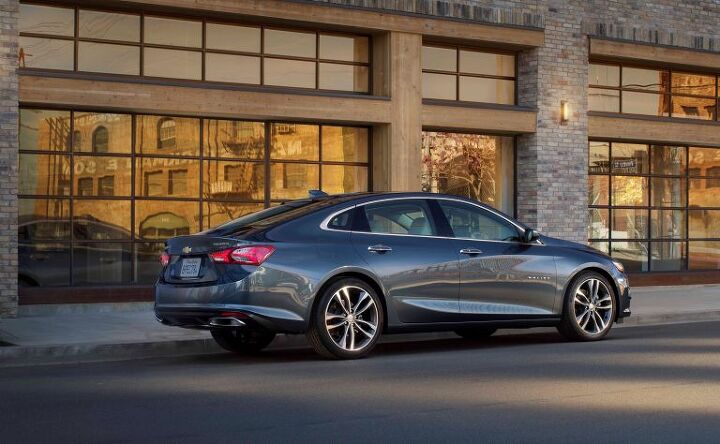
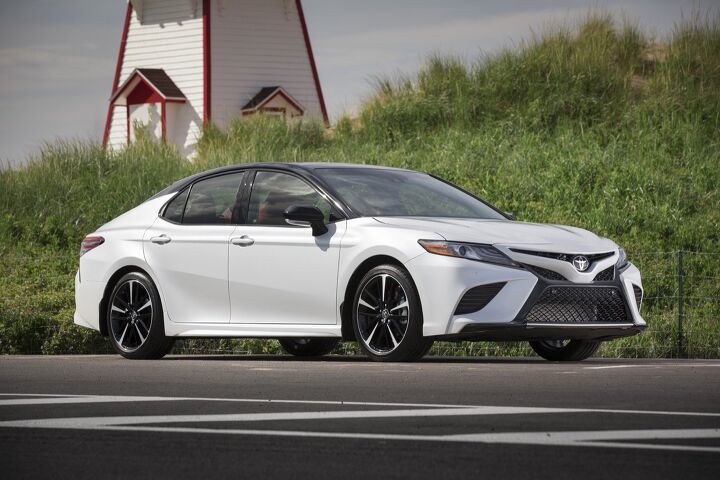
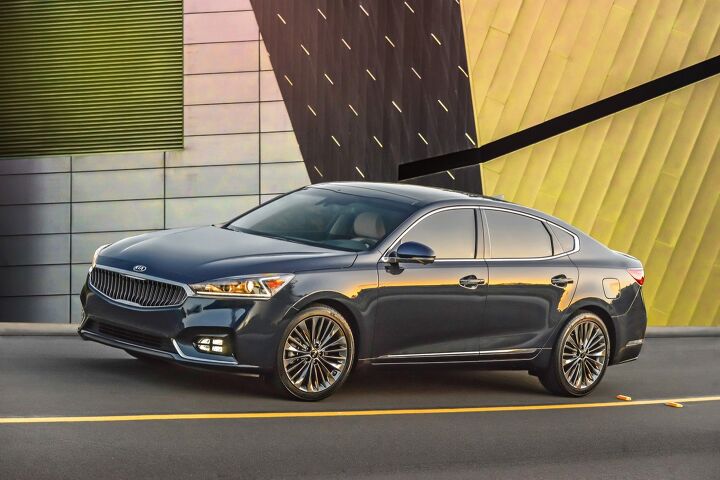



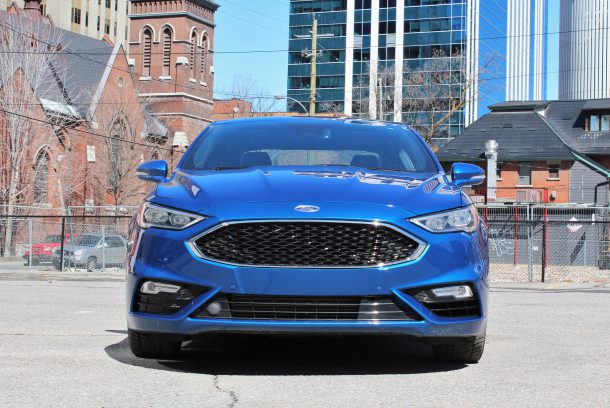

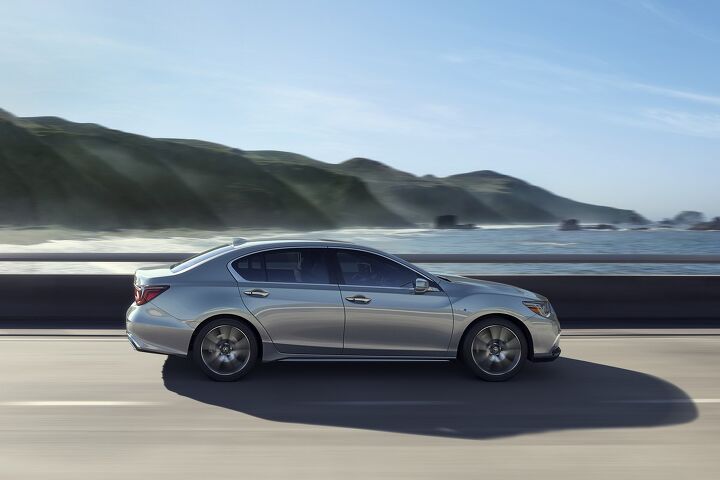


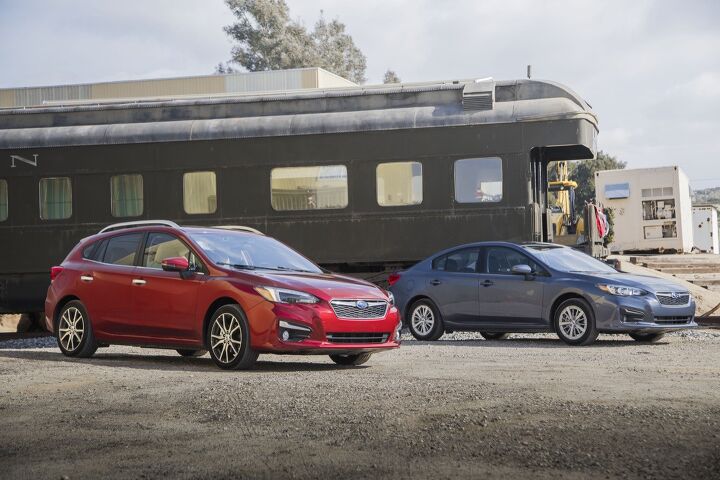
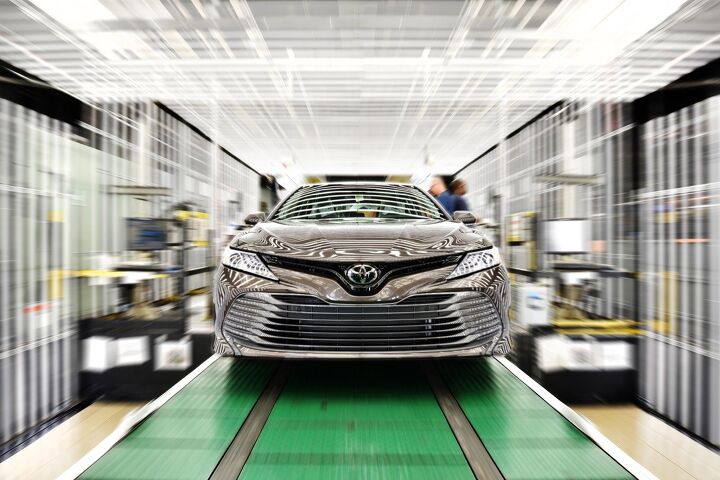

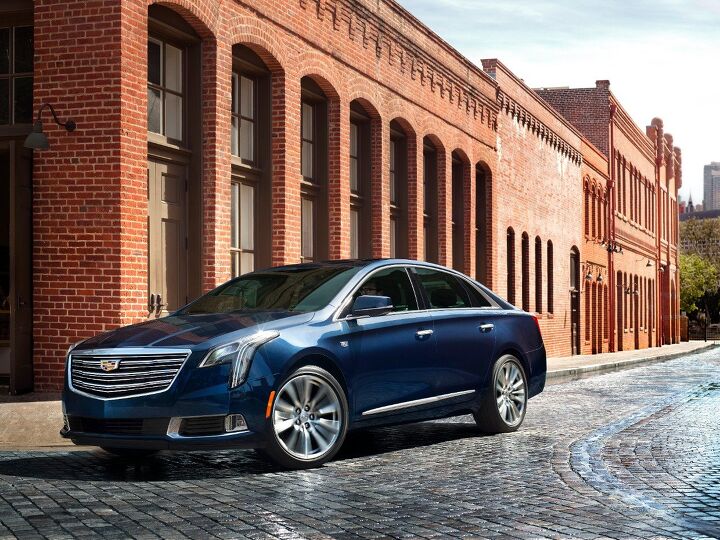












Recent Comments